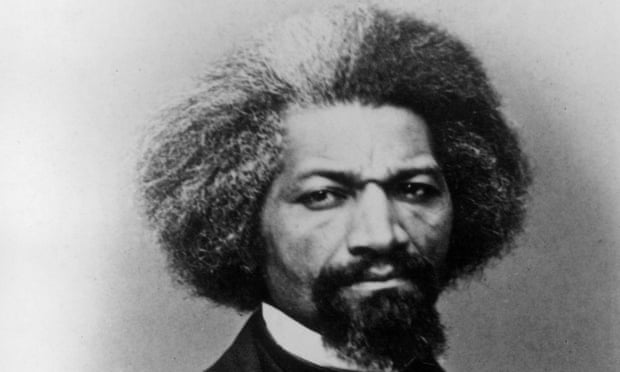
The life and works of Frederick Douglass continue to shape our understanding of America.
A gifted orator and prescient writer, Douglass forces us to reckon with the legacy of slavery and the promises of democracy. We have gathered resources and upcoming online events dedicated to Douglass and we at Mass Humanities encourage you to share it with your community.
Interested in hosting a virtual reading this year? Click here for our tips.
Need versions of the speech in English, Spanish or Haitian Kreyol? Click here.
Leading a discussion? Click here for our discussion guide.
Did Frederick Douglass visit your town? Douglass began his life’s work in Massachusetts, telling his story to communities large and small. From 1839-1845 he was on the road almost every day. See if he came to your town. There’s a good chance he did! Click here to find out.
Massachusetts freedom seekers Douglass often spoke to largely white audiences, but he was part of a vibrant Black community in Massachusetts. Visit the house where a young Douglass found freedom in 1838, and where, today, documents and artifacts evoke the community of Black freedom seekers in Massachusetts. Click here to learn more.
Douglass on the Freedmen’s Memorial The Boston Arts Commission recently decided to remove the Emancipation Memorial in the city’s Park Square, a replica of the statue erected in Washington, D.C., depicting Abraham Lincoln standing above a kneeling Black man. Frederick Douglass delivered the keynote speech at the unveiling original statue on April 14, 1876. As he did in his speech on the 4th of July, Douglass asked listeners to look through the eyes of enslaved people seeking freedom:
“Despite the mist and haze that surrounded him; despite the tumult, the hurry, and confusion of the hour, we were able to take a comprehensive view of Abraham Lincoln, and to make reasonable allowance for the circumstances of his position. We saw him, measured him, and estimated him..”
Read the full speech here.
Mass Humanities supports readings of “What to the Slave is the Fourth of July?” across the Commonwealth.
Visit our Calendar page to find a reading in your neighborhood.
Readings in 2020 include:
Boston
The partners that host annual reading on Boston Common, Charles Hamilton Houston Institute for Race and Justice, Community Change Inc., Museum of African American History Boston, and Mass Humanities, will host a living virtual event on July 2 at 12pm. Click here for more details.
Brockton
Frederick Douglass Neighborhood Association, Podcast and video available July 4. Click here for more details.
Somerville
Somerville Museum, Virtual event on July 2. Click here for more details.
Concord
Robbins House, Video event on July 4. Click here for more details.
Egleston Square, Boston
Egleston Square Main Street, Eglsteon Square Peace Garden, July 11 at 2pm.
Plainfield
Plainfield Reads, Live virtual reading and backyard conversations on July 4.
Newburyport
Historical Society of Old Newbury, Live virtual reading on July 5.
East Falmouth
Cape Cod Cape Verdean Museum and Cultural Center, Event on July 10.
Oak Bluff, Martha’s Vineyard
Renaissance House, Video broadcast TBA.
Lynn
New Lynn Coalition, Video Broadcast July 3rd at 6pm on Lynn Community Television. Click here for more details.
Worcester
Music Mania TV, Live Broadcast, July 1, 2-4pm on Worcester Community Cable Access TV.
More organizations can join through a special $500 sponsorship opportunity offered by Mass Humanities for readings through August 15th or until funds run out. Email kstevens@masshumanities.org to learn more
